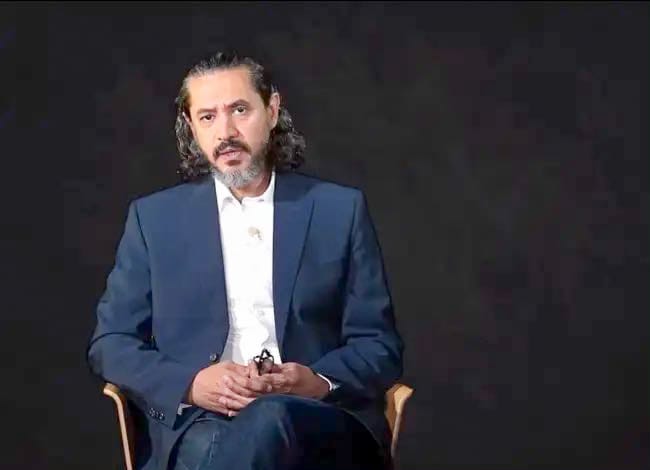Advice from a former Brotherhood minister to Syria
Drawing lessons from Egypt’s turbulent aftermath of revolution, former Brotherhood minister offers cautionary advice to Syria’s new leadership. Meanwhile, President Sisi watches nervously.
I spoke with Amr Darrag, a former member of the Muslim Brotherhood and minister of planning and international cooperation under the late President Mohamed Morsi in Egypt. Like many influential Egyptians, he is closely watching the developments in Syria. Will this revolution, which has spanned nearly a decade, finally deliver what people demanded: freedom, dignity, and bread? For the Muslim Brotherhood—currently fragmented and divided into two dominant camps—the prospects of a legitimate and successful Islamist government carry profound significance. (The same goes for Erdogan.)
Darrag and his colleagues recently authored a report titled "New Syria: From Revolution to State – Between Challenges and Keys to Success," drawing heavily on their experience in Egypt following the fall of Mubarak in 2011. Reflecting on the lessons from the Brotherhood's tenure, Darrag offers critical advice:
Avoid Rushing to Elections
“Moving too quickly is damaging,” he warns. “Ahmad al-Sharra must not rush into elections. We made that mistake in Egypt. Before revolutionary groups had a chance to engage in dialogue, the military exploited the election period to sow division, demonizing segments of society and turning them against one another. By the time we entered office, bitterness was already entrenched. Al-Sharra must move deliberately, allowing civil society time to heal and ensuring all groups feel included in the process.”Careful Constitution-Building
“The formation of the constitutional assembly is pivotal. As a member of Egypt’s assembly, I witnessed how Salafists, particularly the Nour Party, pushed extreme positions that alienated much of the public and eroded trust in the process. The composition and management of Syria’s constitutional committee will be crucial.”Immediate Services and Jobs
“Managing the return of refugees and displaced populations, while addressing urgent economic and social needs, is essential. The interim government must demonstrate its ability to deliver services and create jobs. If people sense the revolution has failed to improve their lives, they quickly lose faith, leaving the new order vulnerable to both internal and external interference. In Egypt, street thugs—shabbiha—posing as disgruntled citizens were manipulated by the army to create chaos. However, I’ve heard promising accounts of governance in Idlib over the last five years. Friends who moved there from regime-controlled areas found better job opportunities and wages ten times higher.”Counter-Revolutionary Forces
“Counter-revolutionary forces, including remnants of the Assad regime, backed by regional and international allies—particularly Saudi Arabia and Israel—will likely attempt to undermine the new order. Economic networks tied to the former regime could also destabilize the transition to protect their interests.”
While Darrag acknowledges the differences between Egypt and Syria, he believes his insights, grounded in experience, hold relevance for the Syrian context.
The Egyptian diaspora, particularly current and former members of the Muslim Brotherhood, is abuzz with anticipation. The fall of Assad appears to have revitalized the group, reaffirming that even the most entrenched authoritarian regimes are not invincible. A seemingly indomitable regime is only as strong as it appears.
That said, this newfound optimism does not mean the Brotherhood will emerge from its ashes overnight. The movement remains deeply fractured, with one camp more prominent but equally bereft of vision or strategy. The central questions—What do you want? and How will you achieve it?—remain unanswered by the movement’s current leadership.
Sisi Ascends as MENA’s Biggest Dictator—But Still Frets
Yes, with Assad gone, Sisi can now lay claim to the title of the Middle East’s biggest dictator—though a vulnerable one, losing sleep over the developments in Syria.
Egypt remains the only Arab country yet to engage with Syria's new leadership. Neither President Abdel Fattah el-Sisi nor his foreign minister has visited or hosted the Syrian delegation.
Nearly a decade after Sisi’s relentless crackdown on political Islam—epitomized by his assault on the Muslim Brotherhood—signs suggest the ideology may be reemerging in Syria.
The new Syrian leadership has the potential to restore political Islam’s influence on the Arab stage, crafting a “success story” that Erdogan, apart from the AKP, has been chasing since 2011. For Sisi, this is an alarming prospect. He refuses to legitimize the movement, fearing that the success of HTS (Hay'at Tahrir al-Sham) could embolden disillusioned youth in Egypt.
Such inspiration would threaten a regime built on the foundations of 65,000 political prisoners and thousands of forcibly disappeared individuals.
Following Assad’s fall, Sisi and pro-government media launched a calculated campaign, stoking fears of a broader conspiracy. They warned the public that dismantling the Egyptian state could follow Assad’s downfall. The elusive “they” behind this alleged plot was left intentionally vague—a textbook authoritarian tactic to invoke paranoia and unity against an undefined enemy. In another timeline, Sisi and Erdogan could have been best friends, united by shared methods, if not for their mutual contempt.
As the wave of anti-HTS rhetoric in Egyptian state media began to subside, new developments emerged that undoubtedly rattled Sisi.
Abdul Rahman al-Qaradawi, a dissident poet and the son of the late Brotherhood leader Yusuf al-Qaradawi, celebrated Assad’s fall in a video. He claimed that Egypt, Saudi Arabia, and the UAE had failed to meddle in Syria’s transition. Shortly after, al-Qaradawi was arrested in Lebanon, interrogated about his video, and questioned regarding a 2017 Egyptian court ruling that sentenced him in absentia to five years for charges including spreading “false news.” Al-Qaradawi, now a Turkish citizen, was ultimately extradited to the UAE, where his rights will likely face severe violations.
Another source of Sisi’s unease is Ahmad al-Mansour, leader of the Syria-based Islamist group “25 January Revolutionaries.” Al-Mansour called on Egyptians to rise against Sisi, with videos bearing the hashtag #ItsYourTurnDictator amassing over 8 million views. Days later, he was arrested in Damascus.
Though Sisi has silenced these two voices for now, his fear of larger, uncontrollable threats persists. This anxiety will likely drive him to adopt an even harsher stance, both towards his citizens and the Syrian government.






Interesting post, thank you!
Looks like the political Islam has nine lives or a lot of zombies